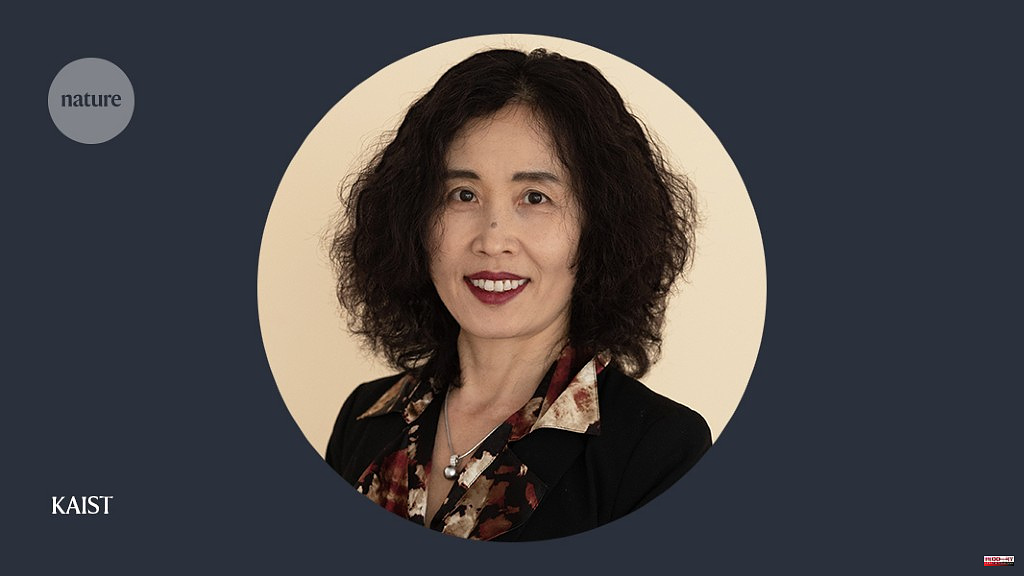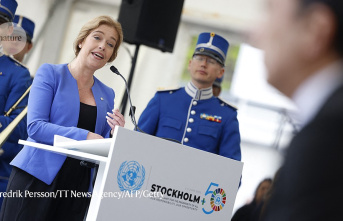South Korea was faced with two challenges at the end of the Korean War in 1953. It had to rebuild its cities and modernize its mostly agrarian economy. It aimed to become a rapid, agile developer of already profitable technologies. In the 1970s and 1980s, industrial infrastructure, including highway construction and light-water nuclear reactors which produced cheap electricity, brought about remarkable economic growth.
In the late 1980s, South Korean policymakers, as well as scientific communities, hoped to transform South Korea from a country that was a "fast follower" following foreign companies to one that is a "first mover", producing groundbreaking, frontier research. 1989's Basic Sciences Promotion Act created funding mechanisms that allowed the government to finance basic research. Between 1990 and 2020, the number of basic science research centres was increased by the science ministry from 13 to 12. The equivalent of US$2.2million (in 2020 dollars), the annual funding grew to $147 million. Moon Jae-in, the former president, oversaw a doubled in basic research funding between 2017 and 2022 (from $1.07 billion to $2.1 trillion). Last year marked ten years since Daejon's multibillion-dollar Institute for Basic Science was founded. The basic science of Korea should thrive, yet no Korean scientist has been awarded a Nobel Prize.
South Korea must reevaluate its strategy for developing its basic science. The country's new president was Yoon Sukyeol, who was inaugurated last month. As a political scientist who specializes in science policy, we have worked together to advise the new government about how to redraw the portfolio of its research and development funding, in light of the COVID-19 pandemic and global supply-chain disruption, and other issues that are related to science and technology.
I have advised on science policy improvement and interviewed many Korean scientists about their hopes, frustrations, and overall experiences. South Korea is home of many innovative scientists and world-class researchers, especially in chemistry and materials science. It isn't as productive as it could be in basic science. Despite having sufficient financial resources, South Korea's research evaluation, grant processes, and cultural conventions don't promote innovation. Policies favor applications over discovery and favour bold exploration over short-term results. Here are some things policymakers need to remember in order to change this.
For basic-science researchers, funding isn't the only thing that matters. It is also fun, the joy of discovery. South Korea's assessment and support structure encourages regular output and not unpredicted exploration. Nearly all universities in the country evaluate academics based on how many papers they produce over a period of review. These requirements are strict. The requirements are strict. Publications are counted, and converted into numerical scores. Certain scores are required for promotion. This is done to encourage fairness and discourage favoritism. However, academics are required to pursue short-term, low-risk projects that produce sufficient papers within the time period. (Yes, there are policies in other countries that discourage risky work. But South Korea's is extreme.
Basic science is not just about the amount of grants, but also the stability of funding. Scientists need time to pursue innovation. However, most funding programs for South Korean researchers last only one to three years. This is not enough time to allow for risky projects to become reality. I interviewed several researchers over the past year about the impact of Moon's doubling of funding for basic research. Nearly all of them said they felt no difference in their ability to accomplish anything. Because evaluations are annually conducted, there is no time to dream big. Even if universities were to change evaluations to allow for longer-term projects the requirements are set by government policies. These policies evaluate institutions every year and award competitive contracts to them. Universities rarely have block grants or other tools to stabilize their funding. All of the basic scientists I spoke to agreed that smaller, more stable funding is better than larger, less stable funding.
South Korea's research infrastructure was built to encourage applied research. Even though the funds are intended for curiosity-driven knowledge-seeking endeavors, many of the conventions support this approach. It is also more favorable to fund small pilot projects than larger, more risky projects. This strategy is more concerned with maximizing opportunities and securing returns than maximising them. A few programs have been created to encourage high-risk research that is high-reward. There have been several attempts to establish a Korean version the US Defense Advanced Research Projects Agency. The latest plan is to launch K-DARPA by January 2023. However, I find that there is very little tolerance for risk in my experience.
Basic science is funded by taxpayers. This means that researchers must be held accountable for the way they spend their funds. All projects should have financial and cultural returns over the long-term. Basic science is not likely to deliver consistent, predictable, and clear results.
If the policy does not fully recognize the intrinsic values of basic science as well as the motivations of basic-science researchers, South Korea will not be awarded a Nobel Prize.












